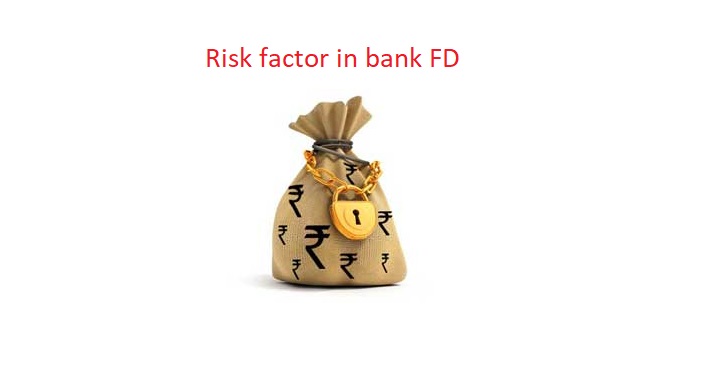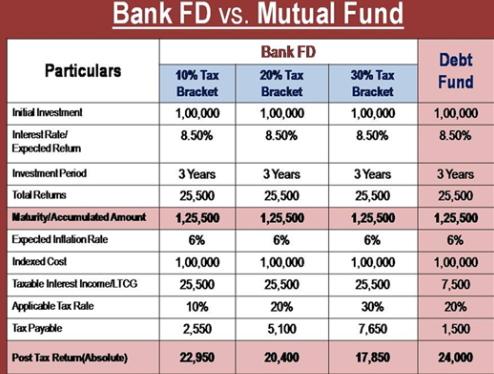
The Technique of Cutting Losses
 Shruti Sharma -
Jan 17, 2023
Shruti Sharma -
Jan 17, 2023
On Wall Street, "Cut your losses short and let your winnings run" is one of the most well-known sayings. Although this is sound advice, many investors still seem to act in the opposite way, either selling stocks after a small profit only to watch them soar or holding stocks with minor losses just to watch them soar.
Nobody will purposefully invest in a stock that they think will lose value; however, investing inevitably involves purchasing stocks whose value declines. Therefore, minimizing losses is the goal rather than completely avoiding them. Successful investors distinguish themselves from the rest by realizing a capital loss before it spirals out of control.
In this blog, we'll show you how to stand out from the crowd and determine your best move. First understand the behaviors and assumptions, which lead to losses.
1. Don't Stocks Usually Climb Back?
Any major stock index's long-term chart will show a line moving from the lower-left to upper-right corner. Over any extended period, the stock market will continue to reach new highs. Investors make the false assumption that their stocks will eventually recover since they are aware that the stock market will rise. A stock index, on the other hand, consists of prosperous businesses. It is a list of prizewinners.
By removing the losers and adding winners, the indexes are constantly refilled. Because the typical loser stock may not always recover; in fact, a lot of businesses never reach their previous peaks, and some even fail.
Video- Meet an Educator & Army Officer's Wife | Wealth Creation Experience of Mrs. Meenaxi Wason
2. Refusal to Take Responsibility
Many investors refuse to accept the wrong decision and decide to keep holding a losing position under the delusion that it is not a loss until the stock is sold. They steer clear of remorse by doing this. Many investors want to stay onto a stock after a loss until it regains its original price. This implies that they will turn a profit and "erase" their error. Sadly, many of these identical stocks will keep losing value.
3. Neglect
Investors frequently take care of their stock portfolios when they are performing well, much like a garden. They demonstrate a strong desire to manage their investments and reap the rewards of their labor. However, many investors lose interest when their equities remain stable or see value declines, particularly over longer time frames. Consequently, these meticulously maintained stock portfolios begin to display signs of neglect. Many investors opt to do nothing at all rather than eliminating the losers. When inertia takes over, people frequently fail to prune their losses and instead allow them to spiral out of hand.
4. Hope Springs
Even when there is some evidence to the contrary, eternal hope is the conviction that a good outcome is still possible. Though hope has a place in theology, it has no place in the stock market's icy, unforgiving reality. Investors will stubbornly hold onto their losing equities despite the negative news continuing, relying only on the flimsy hope that they will at least recover their purchase price. The decision to hold a stock is not based on logical analysis or a well-thought-out investment plan, and regrettably, hoping and praying for a stock to increase in value will not result in it.
Let's examine a few strategies for ensuring that a minor loss does not become unprofitable or balloon into a much bigger loss.
a. Have a plan for your investments
The discipline to sell stocks before the losses materialize will come from having a defined investment strategy that includes a set of guidelines for both buying and selling equities. The tactic may be founded on fundamental, technical, or numerical variables.
b. Reasons for Selling a Stock
A stock can be purchased for a variety of reasons by an investor, but there are normally no predetermined rules for when or why to sell it. Stop allowing this to happen to you. As soon as one of the predetermined reasons to sell stocks arises, sell the stock. Simple instructions like "Sell if adverse news is issued about company developments, or if an analyst decreases the price target" could serve as the justification.
c. Place Stop Losses.
One of the most common pieces of advice on this topic has been to always have a stop-loss order on any shares you own, especially the more volatile ones. The stop-loss order will restrict your losses and prohibit emotions from taking over. It's important to note that after the stop loss is set, you should not change it as the stock price declines. When shares are rising, it makes more sense to change the stop price.
d. Do I want to buy the stock right now?
Ask yourself this straightforward question whenever you assess a stock you own: "If I did not own this stock, would I buy it today?" It should be sold if the response is a resounding "No."
Bottom-line
It's usually a wise move to make corrections before your losses get worse. Although it's not always possible to avoid losses in investing, smart investors understand this and work to reduce their losses rather than strive to avoid them. One advantage is getting a tax credit when you sell stocks at a loss. Another benefit of selling these "losers" is that you won't have to glance at your investment statement every time and be reminded of a prior error. If you are not able to crack the behavioral code of sell timings, it's better to hire a professional advisor for it.
Book one complimentary wealth management consultation with Investocafe’s certified advisor.
Calculate Investment Returns here!
Contact Us or WhatsApp @ 9691924593 or 9111777130 or write at info@investocafe.com
To get in touch please visit us at investocafe.com














